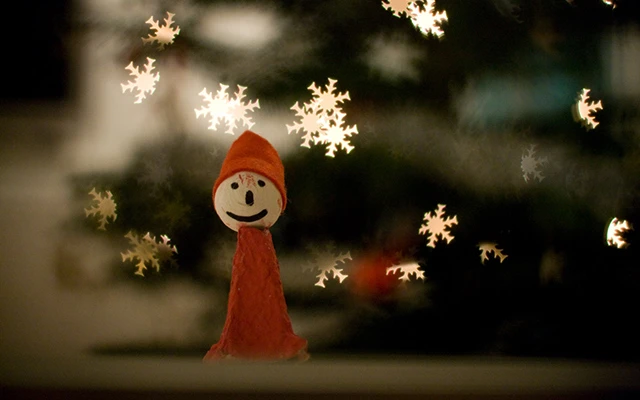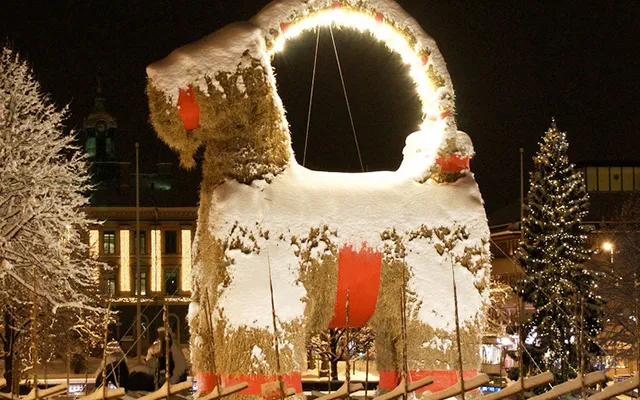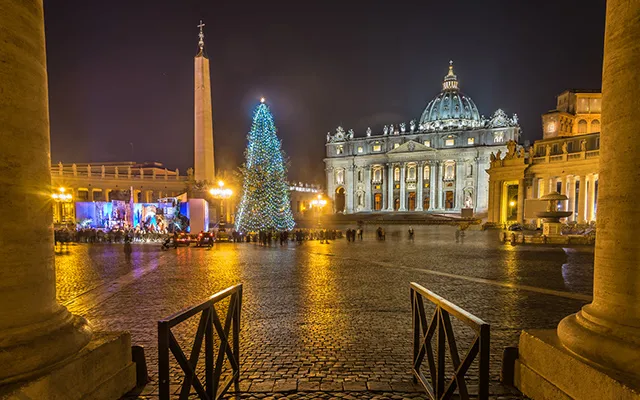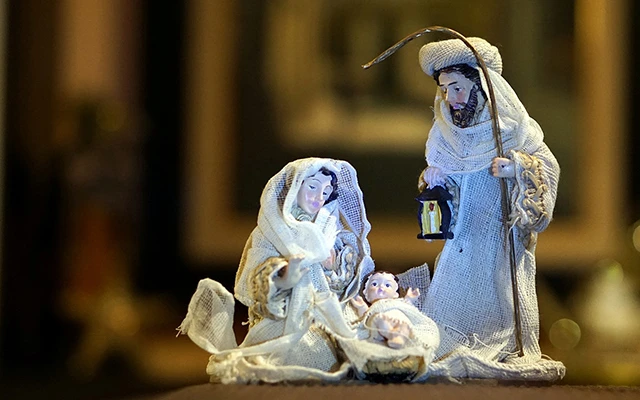Biblical and historical meaning of Christmas
Learn about the origins and the significance of Christmas as well as about the evolution of its' customs through the years.
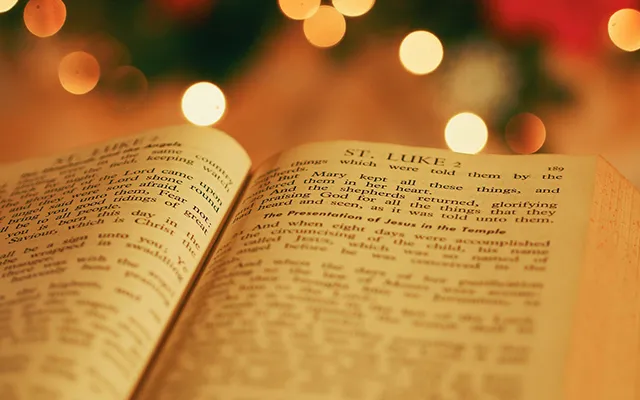
A closer look at the fundamental characteristics of the feast offers a clear picture of the symbolization and the deeper meaning of the celebration. A series of biblical and historical aspects are related to the origin of Christmas and construct a background with religious nature and spiritual connotations.
Biblical origin
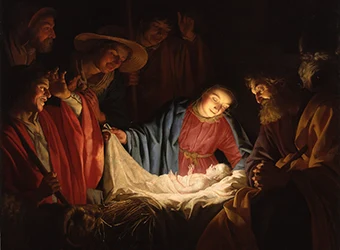
The name of the feast indicates the religious ritual “mass” (divine service) that honors the birthday of Jesus Christ.
The traditional Christmas narrative (Nativity) described in the New Testament, indicates that Jesus was born in Bethlehem by the Virgin Mary.
According to the messianic prophecies, Joseph and Mary traveled from Nazareth to Bethlehem for the census. After a 90-mile long trip, which Mary made on a donkey, the local innkeeper in Bethlehem informed them that there was not any room available. But instead, he let them stay in a rock-cave close to his house which was used as a stable. There, between the animals, Jesus was born and laid in a manger.
The gospels of Evangelists Luke and Matthew illustrate the angels to proclaim the birth of the savior to shepherds who disseminate the news and come to adore him. Moreover, three wise men (magi) lead by a star arrive at the birthplace and offer gifts of gold, frankincense, and myrrh to the newborn.
Historical origin
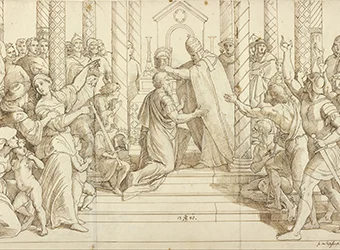
Historians observe some correlation between Christmas and some ancient Greek festivals, pagan beliefs, and North European customs as well as the Jewish holiday of Hanukkah.
Actually, the earliest Christians did not celebrate Christmas at all. Parallel to that the New Testament does not give any specific date or year of Jesus birth.
While in the early period of Christianity, there was an effort from the official church to avoid pagans customs related to God’s birthday celebration. It was not until the 3rd century AD when Pope Julius the first, sets the date of December the 25th as the official Christmas date. Many scholars point out that this was an attempt of the church to Christianize the pagan celebrations that already took place during that period of the year.
More specifically, historians indicate a series of older midwinter celebrations which were taking place after the winter solstice and were dedicated to the glorification of the sun and the longer upcoming days.
The Norsemen saw the sun as a wheel and they were celebrating Yule or Jul (other words for Christmas). While the Romans were marking winter solstice with the extreme celebrations at the pagan festival of Saturnalia. On this way, we have numerous biblical passages linking Jesus to the sun and the uprising light.

General information about Christmas
Christmas is an annual Christian festival celebrating the birth of Jesus Christ. According to the Gregorian calendar which is adopted by the majority of the countries at a worldwide level, Christmas is celebrated on the 25th of December.
Some Eastern Orthodox churches (like the Greek) celebrate it on the 25th of December as well, however, for those that follow the Julian calendar (Serbian, Russian) the date corresponds to the 7th of January of the Gregorian calendar. The Churches of Oriental Orthodox communion honor Christmas in various dates among them the Armenian Apostolic Church on the 6th of January, while the Coptic Orthodox Church and the Ethiopian Orthodox Tawahedo Church on January the 7th.
Etymology
Christmas = Christ's + mass
The English term Christmas derives from the merge of the words Christ's + mass and refers to the celebration taking place on Christ's day. The Feast is mentioned with names with similar connotations in other languages and has been known with various names throughout history.
In Greek it is cited as "Christougenna" (Χριστούγεννα) and refers to Christ's birth. The German word Weihnachten stands for the "hallowed night". The Scandinavian Jul (Swedish, Norwegian, Danish) is related to the old Anglo-Saxon and Germanic winter celebration of Yule/jol. While the corresponding terms Noël (in French), Navidad (in Spanish) and Natale (in Italian) refer to the Nativity of Jesus.
Christmas is a day of meaning and traditions, a special day spent in the warm circle of family and friends.
The day itself is a public holiday in many countries around the world. Nowadays, Christmas is celebrated religiously by millions of Christians as well as culturally by many non-Christians in accordance with the standardized holiday season around it.
